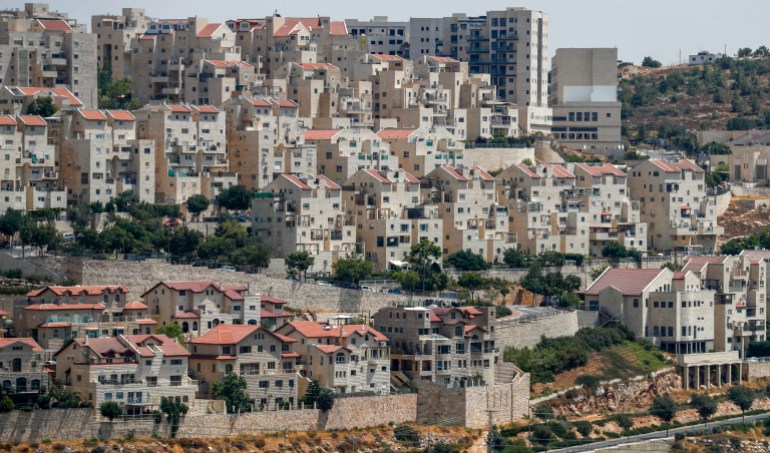Booking.com to warn users reserving occupied West Bank properties
Israeli TV outlet says the website will add a safety guidance to bookings in the West Bank that will include the word occupied.

The online travel booking website Booking.com will start adding safety guidance to all reservations in the occupied West Bank across its platforms, an Israeli television outlet has reported.
The guidance will also refer to the West Bank as “occupied”, Channel 13’s Hatzinor programme claimed. Moreover, similar guidance is being debated for properties in occupied East Jerusalem, the programme added.
Keep reading
list of 3 itemsPalestinian schools in Jerusalem strike over Israel-imposed books
The occupied West Bank cities at centre of resistance to Israel
During the 1967 war, Israeli forces occupied all of historic Palestine and expelled 300,000 Palestinians from their homes. Illegal Jewish settlements continue to grow in the occupied West Bank.
However, many international companies continue to do business in the West Bank, despite a growing international trend towards more ethical business practices.
Booking.com, which removed a reference to Jerusalem as an “Israeli settlement” in 2018, will now add a label that says: “Visiting the area may be accompanied by an increased risk to safety and human rights or other risks to the local community and visitors.”
“Certain areas in the world affected by conflict may pose a greater risk to travelers, so we provide our customers with information to help make decisions and encourage them to check their government’s official travel guidelines as part of the decision-making process,” the company was quoted by Hatzinor as saying.

‘Illusory decision’
Booking.com’s move has led to criticism from the Israeli government.
Israel’s Tourism Minister Yoel Razvozov said that no one had the right to determine for Israelis “what is the territory of the State of Israel and what is not”.
“From the moment I heard the report that Booking was introducing political and political considerations into their activities, I requested to urgently convene the management of the Ministry of Tourism, to determine steps to deal with the illusory decision, and to protect the tourism business in the entire State of Israel,” he added.
Consumer brands are facing increasing pressure to take a stand on Israel’s occupation of Palestinian land.
In 2018, the San Francisco-based home-sharing platform Airbnb said that it was no longer going to list properties in the occupied West Bank, before later reversing its position in 2019.
Last year ice cream maker Ben & Jerry’s said it was going to stop selling its products in the West Bank and East Jerusalem because it was “inconsistent with [Ben & Jerry’s] values”.
In June, Ben & Jerry’s parent company, Unilever, sold its Israeli business to a local licensee, allowing it to circumvent the restriction on sales, in a move that was criticised by Ben & Jerry’s founders on Sunday.
At least 400,000 Israelis live in settlements that dot the occupied West Bank and range in size from tiny hamlets to large towns, in addition to 200,000 living in settlements in East Jerusalem.
The international boycott, divestment and sanctions (BDS) movement seeks to end international support for Israel’s occupation of Palestinian territory, and advocates for freedom, justice, and equality for Palestinians, as well as for Israel to comply with international law.